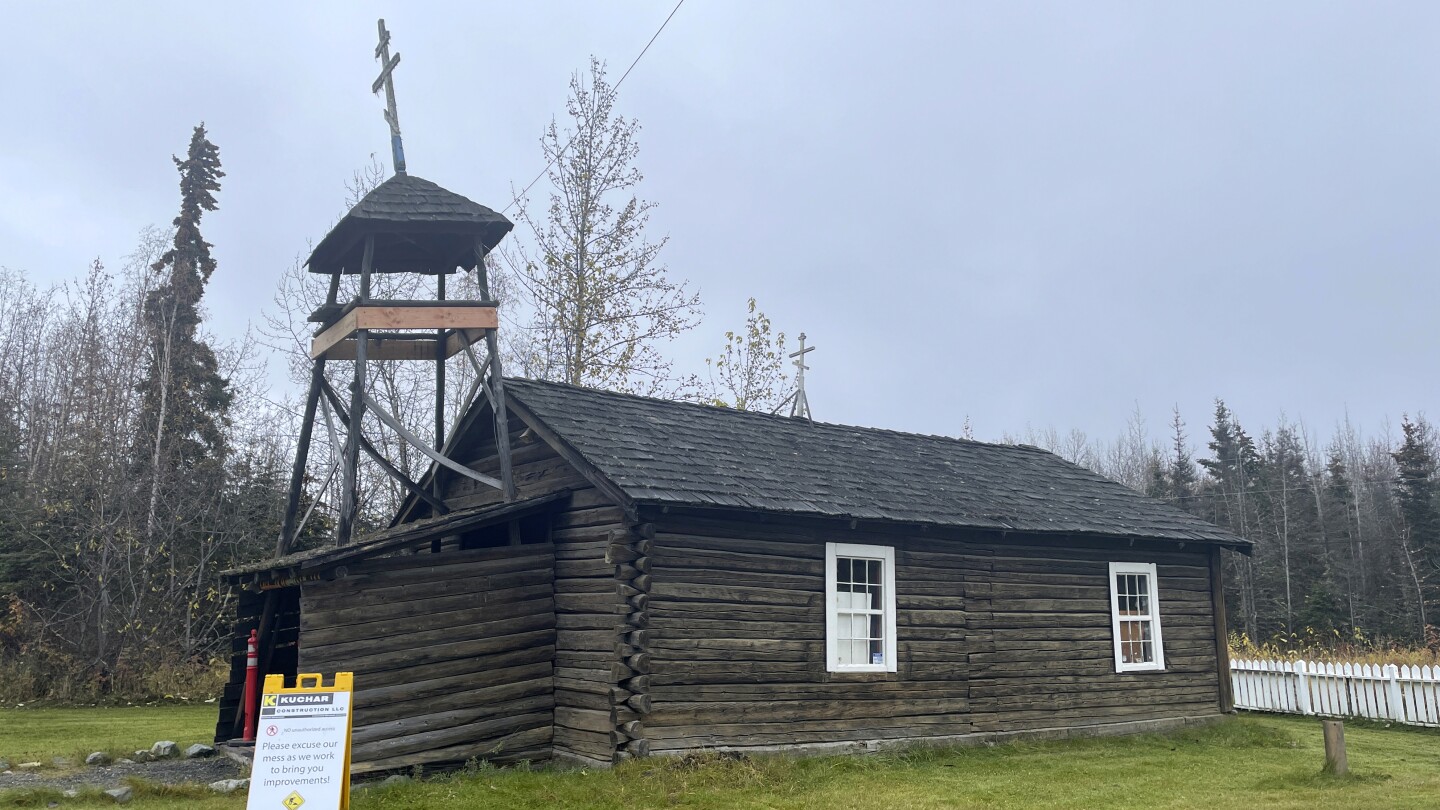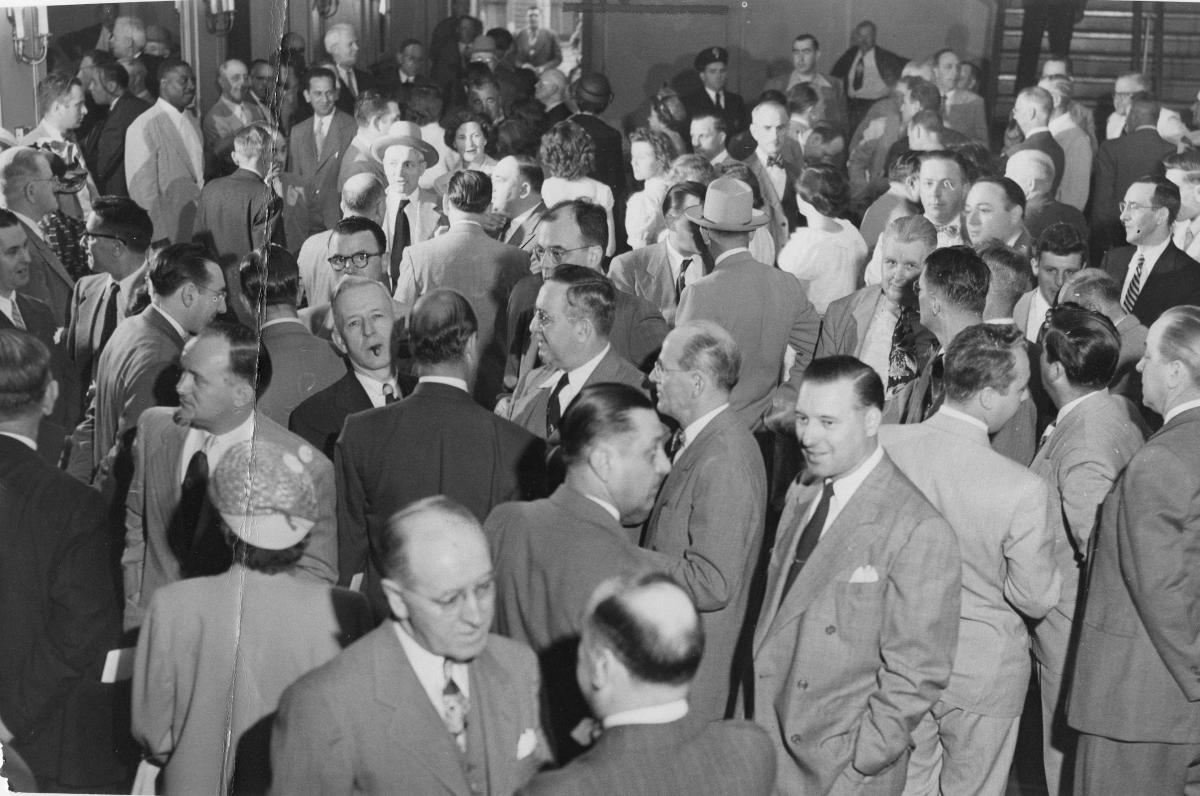JUNEAU — With just days left in the Alaska Legislature’s regular session, major policy measures are unresolved related to energy, crime, homeschool allotments and elections.
In recent years, the budget has been the biggest source of contention and debate between legislators and Gov. Mike Dunleavy. This year, the budget has largely advanced smoothly. However, the size of this year’s Permanent Fund dividend has not been reconciled. Across the political spectrum, legislators expect it will be close to the Senate’s approved figure of almost $1,600 — lower than the nearly $2,300 figure sought earlier in the session by the House.
Senate President Gary Stevens, R-Kodiak, said Saturday that crime and energy bills are the “most crucial” measures being considered this year.
Legislators say that a multipart elections bill is the least likely of the big policy items to pass. It combines a proposal to clean up the state’s voter rolls with election provisions typically supported by progressives, like same-day voter registration.
Fairbanks Democratic Sen. Scott Kawasaki, the chief sponsor of the elections measure, acknowledged that energy, education and the budget are the highest priorities for the Legislature.
”But you can’t forgo the other issues that are part of this Legislature, like elections,” he said. “These are other things that have to pass.”
The House spent more than seven hours Saturday debating a doomed bill to restrict how transgender girls participate in school sport teams. Meanwhile, the Senate Finance Committee continued discussing and amending some of the Legislature’s biggest policy priorities.
:quality(70)/cloudfront-us-east-1.images.arcpublishing.com/adn/NQHJPYHAVFH5ZKKEQOVKIAMLRI.jpg)
There have been frequent breaks so legislators and the governor’s staff can meet behind closed doors to negotiate. But House members were kept largely occupied by the floor debate, halting their work on some legislation they have sought to prioritize.
The Alaska Legislature’s regular session must end by midnight on Wednesday, May 15.
Energy and transmission
Addressing a looming shortfall of Cook Inlet natural gas has been a key priority this year for Dunleavy and many in the Legislature.
Several measures have been heard to reduce royalties on oil and gas production, which are intended to incentivize new gas production. Members of Senate leadership have raised concerns that forgoing state royalty revenue won’t necessarily see more gas produced. Stevens said there’s simply not enough time left to consider and approve those bills.
“I just don’t see how we can come to a conclusion on that because we just don’t know the implications,” he said Saturday.
Asked if he thought royalty relief was off the table this year, Sutton Republican Rep. George Rauscher said, “Not at all.” He said House Bill 223 could be considered Saturday or Sunday on the House floor as discussions continue with the Senate.
The bill was initially scheduled for a floor hearing Saturday morning, but its hearing was delayed to allow time for the hours-long debate on transgender policy.
“We’re still negotiating but I’m stuck on the floor. Otherwise, I would have been able to get a lot farther today,” Rauscher said Saturday.
Green bank bills have advanced to a final vote on the House and Senate floor. The measures proposed by Dunleavy would allow the Alaska Housing Finance Corp. to offer loans for renewable energy projects. More than 80% of the Railbelt’s power comes from natural gas. A green bank bill has been supported as a way to diversify the Railbelt’s sources of energy, and is expected to pass into law this year.
:quality(70)/cloudfront-us-east-1.images.arcpublishing.com/adn/LMHDOOMJ4VAXNDHZUC7KPD55NY.jpg)
Measures are also being heard by the House and Senate finance committees to modernize the Railbelt electric grid. The proposal for an integrated transmission system has divided the Railbelt utilities. Several prior attempts to form a transmission organization have fallen short over the past 50 years.
Chugach Electric Association — the state’s largest electric utility — has opposed key elements of the plan, leading legislators to coalesce around a more limited version of the proposal. The transmission organization would not have planning authority or management of the utilities’ assets. Sen. Cathy Giessel, R-Anchorage, said Saturday that would be a “shell” of the proposed transmission organization she helped author.
The measure originally proposed by Dunleavy would also have exempted renewable power producers from local property and sales taxes. On Saturday, legislators said that provision is still being negotiated between lawmakers and the governor.
Another key measure is House Bill 50. It would develop a statutory framework so the state could lease depleted gas reservoirs to store carbon dioxide deep underground. Once pitched as a revenue-raising tool for the state, carbon sequestration has now been supported as a way to attract oil and gas investment.
A provision added to HB 50 would allow the Alaska Industrial Development and Export Authority, or AIDEA, to issue loans to producers based on their gas reserves. Those loans are intended to assist BlueCrest, an Alaska-based producer, that needs $400 million to buy a platform to produce gas from the Cosmopolitan Unit in Cook Inlet.
The bill has a provision intended to prevent oil companies from deducting carbon capture and storage expenses from their state oil production taxes. But producers could still deduct costs for enhanced oil recovery.
Officials at the Department of Natural Resources have said enhanced oil recovery is a currently allowable tax deduction, and part of the oil industry’s normal operations on the North Slope. Sen. Bill Wielechowski, D-Anchorage, has argued that allowing deductions for enhanced oil recovery could potentially “blow an enormous hole” in the state budget.
A contentious provision to raise taxes on Hilcorp by more than $100 million per year was removed from the bill Wednesday after a fierce lobbying campaign.
The carbon storage bill was in the Senate Finance Committee as of Saturday evening. There have been concerns expressed in public testimony that carbon sequestration is expensive and largely unproven. But the bill has been a key priority for Dunleavy and many in the Legislature, and is expected to pass this year.
Crime bill
An omnibus crime package in the Senate combines proposals from a handful of House and Senate bills. The package has been crafted to get enough support in both legislative chambers, and is broadly expected to pass this year.
“As we move into an election here, people want to take a stance on crime. It’s such a powerful thing for people to run on,” Stevens said.
House Bill 66 contains provisions for tougher sentences for stalking; enhanced penalties for committing domestic violence and sex assault offenses in the presence of a child; renaming child pornography as child sex abuse material in state law; and the imposition of “some additional jail time” for repeated violations of conditions of release from prison.
Homer Republican Rep. Sarah Vance, chair of the House Judiciary Committee, said “it is very, very important” to pass a crime bill this session.
”Addressing crime and protection for victims is just as important as addressing energy and education. I believe we can do all at the same time,” said Vance.
”Do I love everything? No. But I can live with most of it,” Anchorage Republican Rep. Craig Johnson said Saturday.
Alaska reported its highest-ever rate of fatal opioid overdoses in 2023. As a response to the state’s fentanyl crisis, a contentious set of provisions would impose longer sentences on drug offenses.
:quality(70)/cloudfront-us-east-1.images.arcpublishing.com/adn/XFOCCMGOSZC7HKEH3JT6EUFHHI.jpg)
Sandy Snodgrass, whose son Bruce Snodgrass died from a fentanyl overdose in 2021, spoke in support of those provisions. She said Alaska’s leaders need to respond “to the scourge of fentanyl and illicit drug poisonings in our state.”
The ACLU of Alaska opposes several key elements in the bill. Michael Garvey, advocacy director of the civil rights law firm, said longer sentences would not act as a deterrent.
“However, they often have the opposite effect of incarcerating people with substance use disorders and deterring people from calling for help,” Garvey said Thursday.
Under HB 66, crime victims and witnesses would no longer need to present in-person at grand juries. That change would allow law enforcement officials to summarize a victim’s testimony or to show a video of that testimony at grand jury proceedings. Victims’ rights groups have said that could help avoid retraumatizing crime victims, particularly in domestic violence and sexual abuse cases.
The federal government and 33 states allow “hearsay” evidence to be presented to grand juries to secure an indictment, which is constitutionally required in Alaska for a felony charge to proceed to court. The change would apply not just to domestic violence and sexual abuse, but to all felony offenses.
Civil liberties groups have raised concerns that using second- and third-hand evidence at grand juries could deny Alaskans long-held protections against unfounded charges.
Susan Orlansky, a private attorney who often volunteers with the ACLU of Alaska, said she was concerned because grand jurors could not evaluate the credibility of witnesses or ask follow-up questions. Under the bill, the law enforcement officer presenting to the grand jury may not have interviewed the victim or investigated the case.
”By allowing second- and third-hand hearsay, the bill authorizes testimony that’s no more reliable than the last statement in a game of telephone,” Orlansky said.
Sen. Jesse Kiehl, D-Juneau, said Saturday that he’s sensitive to the concerns of victims’ rights groups, but he is also trying to craft an amendment to narrow what hearsay evidence can be presented to grand juries.
Another key provision in the bill would extend the period certain people can be involuntarily committed. That comes after an Anchorage woman, Angela Harris, was stabbed in the back two years ago in the Loussac Library by a man who had been deemed unfit to stand trial.
Supporters say involuntary commitment reforms could help protect Alaskans. But the ACLU of Alaska has raised constitutional concerns about the impacts of extending involuntary commitment from a maximum period of six months to two years. Sen. David Wilson, R-Wasilla, said he was concerned that the long-struggling Alaska Psychiatric Institute could also be overwhelmed with new patients.
Homeschool and education
Competing bills in the House and Senate would instruct the Alaska board of education to draft new regulations governing Alaska’s correspondence programs, after an Anchorage Superior Court judge ruled last month that two state statutes violated the state constitution by allowing public funds designated for the program to be used at private and religious schools.
But the bills — and the urgency that some lawmakers see in passing legislation to shore up the schools that serve nearly 23,000 homeschooled Alaskans — could be used as a vehicle to add other education provisions, including a permanent increase to state spending on education long sought by educators.
The correspondence school statutes, conceived by Dunleavy when he was a state senator, were enacted in 2014, allowing for a growing practice of families using correspondence allotments of up to $4,500 per student per year to be used to pay tuition at private schools.
The decision by Judge Adolf Zeman, which prohibited the practice but kept correspondence programs in place, was paused through June. It was appealed by the Dunleavy administration to the state Supreme Court, which has proposed an expedited hearing schedule.
House Bill 400, authored by Rep. Justin Ruffridge, a Soldotna Republican, would create a temporary solution, instructing the state board — whose members are appointed by Dunleavy — to put in place regulations that will expire in 2025, allowing lawmakers to work on a permanent solution when they return to Juneau next year that takes into account the supreme court decision.
At Dunleavy’s urging, the bill would also keep on the books the statutes that Zeman found violated the state constitution, meaning they could be reinstated if the Alaska Supreme Court overturns Zeman’s decision.
The House Finance Committee held a hearing on the bill that lasted late into the evening on Friday. During the hearing, some minority members raised concerns about whether the state board of education could be trusted to enact regulations that followed the constitution.
“They’re going to philosophically follow what the attorney general tells them to follow,” said Rep. Andy Josephson, an Anchorage Democrat. Attorney General Treg Taylor has used correspondence allotments to pay tuition at private Christian schools.
Senate Bill 266, authored by Sen. Löki Tobin, an Anchorage Democrat, would instruct the state board to author permanent regulations — with more defined guardrails on how the correspondence allotments can be used, including a limit on the amount of funds that can be kept from year to year, and a limit on the amount of funds that can be used to pay for private music, arts and physical education classes.
Stevens, a Kodiak Republican, said he trusted that the board would enact constitutional regulations, even if lawmakers failed to pass a bill instructing them to do so before the end of the session.
“In the end, if we can’t get a bill through — I’d prefer it if we could, but if we can’t — then I think the governor and the administration and the department has the wherewithal to write the rules,” said Stevens.
The Senate bill must be heard by the Finance Committee before it can head to a floor vote. It has yet to be scheduled for a committee hearing.
“As they often say, they are not a rubber stamp, so they’re going to do their due diligence,” Tobin said of the coming hearing in the Finance Committee, adding that she expected the House proposal could pass before the Senate finishes considering its competing proposal.
Despite Dunleavy’s indication that he wanted to keep the struck-down statutes on the books, Tobin said she wanted to see them amended in legislation that lawmakers consider this year.
“My approach is to pass legislation that will create stability and certainty,” she said.
In Friday’s House Finance Committee hearing, Rep. Alyse Galvin, an Anchorage independent, proposed an amendment that would have permanently increased Alaska’s education funding formula. That amendment was tabled in a narrow 6-5 vote. The committee ended its work for the day at 8 p.m. without passing the bill, leaving open the possibility of further changes when the House Finance Committee reconvenes.
“To me, there’s nothing more important than having predictable, adequate, stable funding,” said Galvin. “This is just a lift-all-boats amendment.”
Lawmakers earlier this year agreed to permanently increase the Base Student Allocation from $5,960 to $6,640, amounting to an increase of roughly $175 million per year. But Dunleavy vetoed that bill and lawmakers failed by a single vote to override his veto.
The current year’s budget already has an equivalent funding boost, but the funding was added on a one-time basis, meaning it would not be included in next year’s budget without additional action by lawmakers, and schools are limited in how they can use the funds.
Supporters of the permanent boost have said it will aid all public school students in Alaska, including correspondence and charter students, who have been championed by Dunleavy.
Lawmakers opposed to the move, including many House Republicans, have said they opposed it because Dunleavy has said he will veto an increase to the Base Student Allocation unless his priorities are satisfied.
Dunleavy said earlier this year that he is seeking to empower the state board of education to approve new charter schools — a power currently given only to locally elected school boards. Leaders of the bipartisan Senate majority have said they’re opposed to the proposal.
Tobin said that without specific guidance from Dunleavy on whether he would support a permanent BSA increase, the bipartisan Senate majority would be unlikely to pursue adding a funding boost to a bill meant to stabilize correspondence schools.
“I do not see the bandwidth of my caucus to go back through the negotiation process just to have a similar outcome as what happened (on the vetoed bill),” said Tobin.
“It is a little difficult to know what we could get across the finish line at this point in time. So it feels like it’s a bit of a shot in the dark.”
• • •






:quality(70)/cloudfront-us-east-1.images.arcpublishing.com/adn/YNA67BGXUJBAXDHJ6LZEI6WUSU.jpg)
:quality(70)/cloudfront-us-east-1.images.arcpublishing.com/adn/YXQ66IQUABGW7BERFHDQR6QHHU.jpeg)
:quality(70)/cloudfront-us-east-1.images.arcpublishing.com/adn/PZFQC55RWREUPFFG763UQLSBUE.jpeg)
:quality(70)/cloudfront-us-east-1.images.arcpublishing.com/adn/36H3OMXE3JER7JHDSCID5VDK4I.jpeg)






















